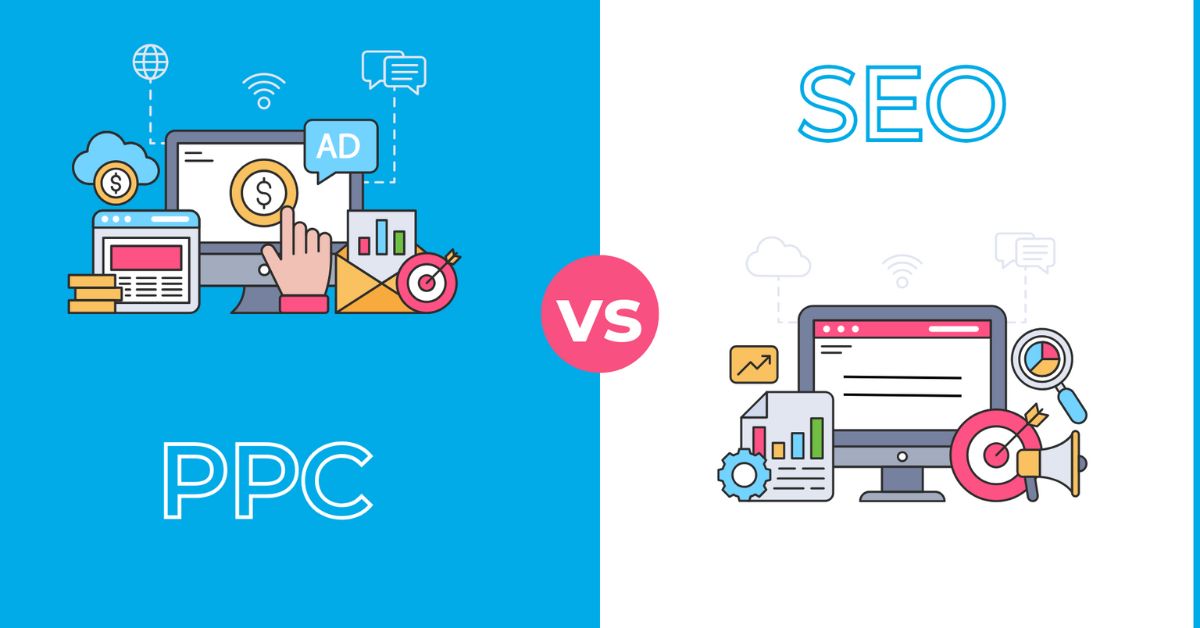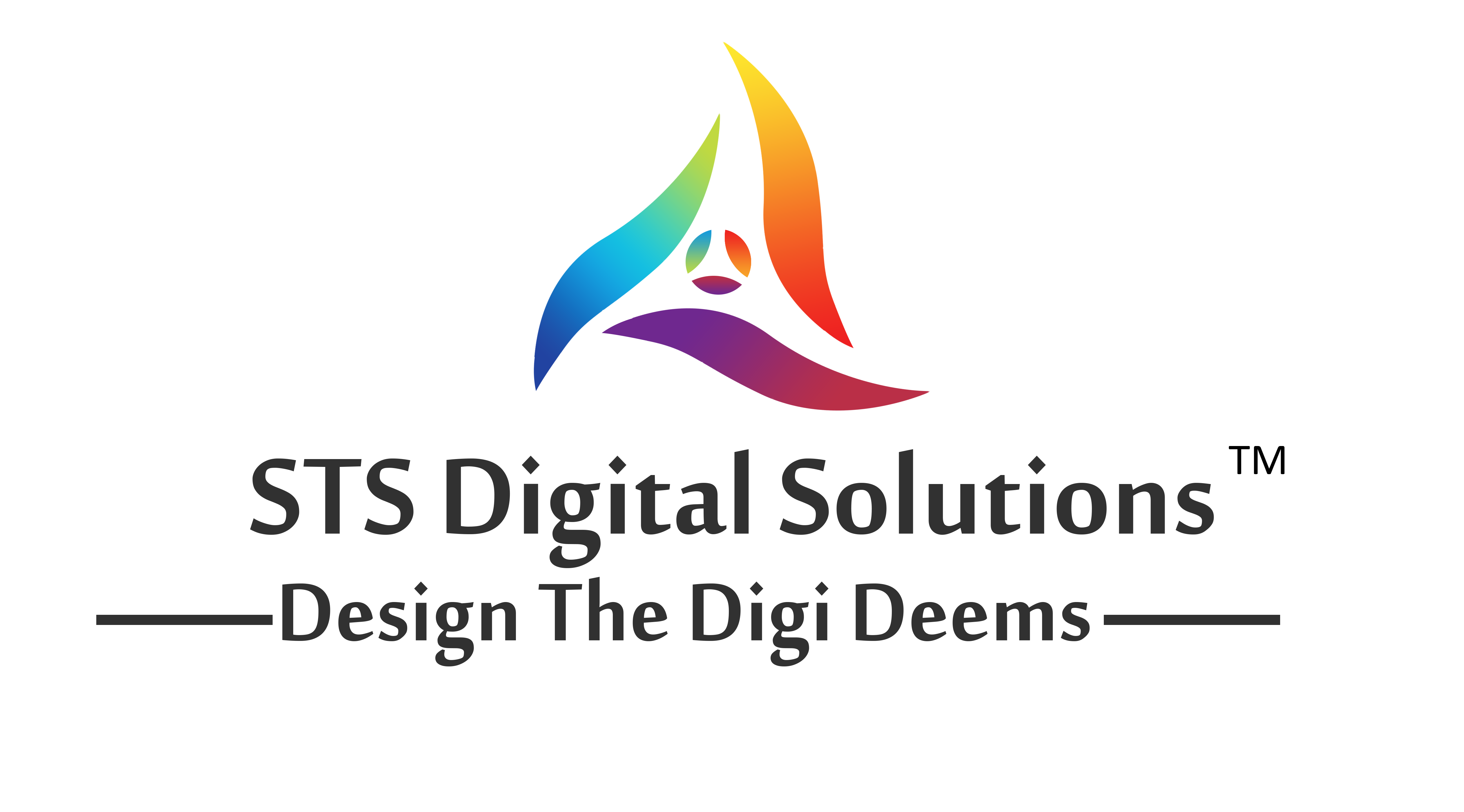SEO vs PPC in 2025: What Should Companies Focus On?

Understanding the Battle: SEO vs PPC in 2025
In 2025, digital marketing will mature in a highly competitive, data-operated field where every click, impression, and search query matters. The question of whether businesses should prioritize SEO or PPC is more relevant than ever. -As consumer behavior changes and search engines develop, marketers and entrepreneurs are constantly trying to determine the most effective strategy for generating leads, improving ROIs, and creating sustainable visibility.
Search engine optimization (SEO) and pay-per-click (PPC) advertisements are two fundamental digital marketing strategies. While both are aimed at increasing visibility on search engines such as Google, their approach, cost, time limit, and results are very different. With SEO, the brand creates organic visibility over time by adapting the material, improving the site structure, and earning backlinks. On the other hand, PPC allows advertisers to bid for advertising placements at the top of the search results, usually through platforms such as Google Advertisements or Bing Ads.
What Makes SEO Powerful in 2025?
In 2025, SEO has developed well beyond simple keyword stuffing and link building. With the rise of Google's ever-improving algorithm and AI-integrated search features, modern SEO values, intent-based materials, and an extraordinary user experience are about providing.
Voice search, AI summary, and zero-click discovery are now dominating a significant part of user activity. Consequently, SEO experts are optimizing the content not only for the ranking, but also for the paid snippet, visual search, and AI-generated search reactions.
Technical SEOs, mobile-first sequencing, schema markup, and page speed optimization are more important than ever. Google's core web vitals update, introduced a few years ago, has now become a basic requirement. Organic content that gives the right answer to questions, provides deep value, and follows EEET (experience, expertise, authority, and reliability) will dominate the search engine result pages (SERP).
Another major trend in 2025 is the occasional Authority. Search engines now reward websites that provide depth on a subject rather than scattershot coverage of unrelated subjects. Blogs, guides, and knowledge hubs are now structured around content groups and column pages, allowing brands to keep an entire subject area systematically. This makes the SEO a long-term game-but with a compound advantage.

Why PPC Still Delivers Immediate Value
In 2025, PPC remains an invaluable channel for businesses in search of immediate visibility, rapid testing and average returns. Both Google Advertising and Microsoft Advertisement have adopted AI to bid, advertisement copy manufacturing and automatic targeting of the audience. This has made the campaigns more accessible, even for small businesses, provided they have a defined target and adequate budget. Modern PPC is also spread beyond the search engine. Platforms such as new channels, YouTube, Facebook, Instagram, and even TikTok Ads and Spotify ads have turned into performance-operated advertising ecosystems. With accurate demographic targeting, retiring capabilities, and conversion tracking, PPC provides high-level control. Paid advertisements still provide unmatched speed to launch a new product, run seasonal publicity, or enter competitive markets.
The set of PPC in 2025 has an increasing influence of automation. AI handles a lot of adaptation in real time. Responsible search advertisements, dynamic keyword insertion, smart bid, and even A/B tests are now algorithm-managed. This allows businesses to focus more on strategy and reduce daily manual adjustments. However, increasing cost per click (CPCs) in competitive industries means that without proper adaptation, the PPC may quickly dry the budget.
Comparing Long-Term vs Short-Term Benefits
Businesses often struggle to choose between SEO and PPC as they serve various objectives. SEO is a long-term investment with cumulative returns. It is slow to start over time, but more durable. A well-customized blog post or landing page can run traffic for years with minimum ongoing investment. The PPC, on the contrary, gives rapid results, but the moment you stop funding advertisements, the visibility disappears.
In terms of ROI, SEO usually becomes more cost-effective than a long time. There is no cost per click, and organic traffic can be increased with the right content strategy. On the other hand, PPC is more expensive - you pay, you get traffic. But it comes at the cost of increasing advertising expenses, especially in saturated markets. For businesses that need to create authority, brand appearance, or long-lasting traffic sources, SEO should be the foundation of strategy. For people testing new markets, campaigning, or immediately generating, PPC is a better short-term solution.
What 2025 Data Tells Us About User Behavior
One of the most important developments in 2025 is the way users are engaged with search results. AI-generated answers, Voice Assistants and Zero-Click discoveries have re-shaped user's expectations. People now want immediate, brief and accurate information. It creates a major battleground for the painted snippets, AI summary and knowledge graph which is a major battleground for biological abstraction.
On the PPC side, the integration of AI ad platforms has made privatization comfortable. Advertisement User preferences now adjust in real time depending on preferences, browsing behavior, and even device types. For example, Google's performance maximum campaigns, search, performance, shopping, and video add to an integrated strategy-provide better data to the masters, but they need to rely more than before on AI's decision-making power.
It is also worth noting that confidentiality updates and third-party cookie deprecation have influenced both SEO and PPC. First-sided data, email lists, and customer relationship management (CRM) systems are becoming important tools for target and privatization in all digital efforts.

Making the Right Choice for Your Business in 2025
So, what should your business pay attention to CO or PPC in 2025? The answer depends entirely on your goals, resources and timelines. Ideally, a well-rounded digital marketing strategy should be involved in both. The SEO builds the rights of your brand and systematically believes, while the PPC allows you to increase that appearance through targeted operations.
New businesses may want to bend the PPC initially to produce rapid results and gather insights about the audience. The brand installed with a stable content production engine and website authority will benefit more than SEOs. Finally, the most successful companies are those that consider SEO and PPC to supplement instead of competitive channels.
The smartest move in 2025 is to evaluate what each platform can offer in context. For time-sensitive campaigns, high-proclaimed keywords, and remarketing efforts-PPC is your partner. For sustainable traffic, cost efficiency, and brand reliability, SEO is your foundation stone.
Conclusion
In 2025, the option between SEO and PPC is no longer binary - it is strategic. Each channel serves a purpose, and when properly integrated, they support and increase each other. Business, identifying the unique strengths of both SEO and PPC, will dominate their markets with data-supported, customer-focused approaches.
For brands looking to scale digitally, STS Digital Solutions helps businesses strike the perfect balance between SEO-driven authority and PPC-fueled agility. Whether you want to boost organic visibility or fine-tune your ad campaigns, their expert team delivers tailored strategies built for 2025 and beyond.
Frequently Asked Questions
(FAQs)
Yes, SEO remains a crucial part of long-term digital strategy. With evolving search behavior and AI-driven content curation, SEO is even more relevant in 2025 for sustainable growth.
While CPC rates have increased, Google Ads has also become more intelligent. With AI-powered bidding and smart campaigns, advertisers can still optimize cost and performance.
Absolutely. PPC platforms now offer better automation and targeting, making them accessible for small businesses with even modest budgets if managed strategically.
E-commerce brands benefit from both. Use PPC for immediate sales and product promotion. Invest in SEO for long-term traffic, product discovery, and content-driven conversions.


